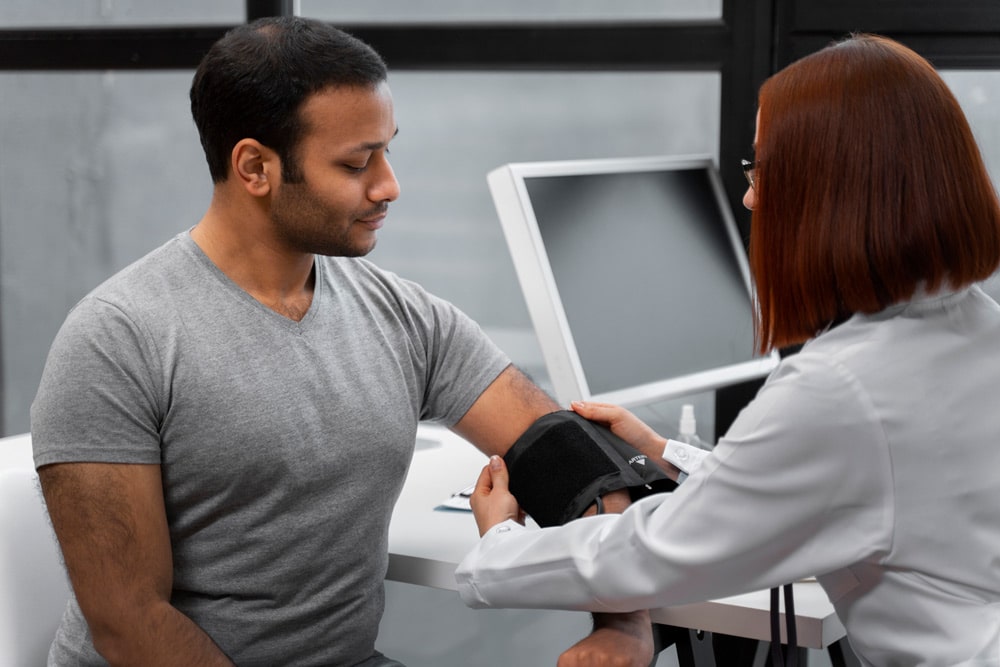
Insomnia due to anxiety
The end of summer marks an important transition in many people's lives. Relaxing vacations give way to a return to routine,

The end of summer marks an important transition in many people's lives. Relaxing vacations give way to a return to routine,

Crohn's disease (CD) is a chronic inflammatory disease of the gastrointestinal tract. Although it can affect any part of the gastrointestinal tract (from

Lupus, also known as systemic lupus erythematosus (SLE), is a chronic autoimmune disease. That is, a disease caused by the immune system. The immune system

Diabetes is considered one of the leading causes of illness, disability and death worldwide. According to estimates by the International Federation of

Summer has arrived and with it, the days full of sun, beach and outdoor activities. It is undoubtedly a season

The genome is the set of genetic instructions found in a cell that give rise to biological life. In the case of

What is Alzheimer's disease? Dementia, also known as major neurocognitive disorder, encompasses a set of concurrent symptoms whose main symptom is deterioration

Whole exome sequencing (WES) is one of the most popular next-generation sequencing (NGS) methods used today to detect

Whole genome sequencing (WGS) provides a complete picture of your DNA. It is ideal for detection of genetic variants and has become more

When giving instructions to locate objects or people, the use of colors is very common. In doing so, we forget that we do not
For digestive clinics or physicians. Provides information on the genetic predisposition to develop diseases of the digestive system- such as Chron's, Inflammatory Bowel Disease among many others - as well as intolerances. This supports a possible early diagnosis and prevention. The results of this study are very positive, allowing for more precise and personalized interventions to improve the quality of life of the patients.

The applicability and importance of the PRSs in cardio is endorsed by the American Heart Association (AHA). The applicability of PRS is made possible thanks to this tool that helps in the cardiovascular disease prevention: identifying patients with a higher genetic risk of developing conditions such as diabetes, thromboembolism, hypercholesterolemia, and coronary artery disease (CAD), among others, enabling early interventions and preventive measures to improve patients' cardiovascular health.

Access and consultation of genetic data relevant to health and pharmacology. Thanks to this tool, it is possible to know the predisposition of patients to suffer adverse effects and what dose adjustments are necessary for more than 150 drugs, thus improving safety, efficacy and treatment personalization. This information is backed by Stanford University and approved by the FDA and gives solutions for biobanks, and research organizations.

Specialized for dermatological clinics, this service provides information on dermatogenomics: skin sensitivities, efficacy of various topical and oral treatments, essential vitamins and minerals for skin health, dermatological conditions, skin types and more data to help you customize your skin care recommendations.

Genetic analysis allows for the design of personalized training programs that, taking into account genetic characteristics focused on the world of sports, such as muscle fiber types and predisposition to injuries, maximize performance and reduce the risk of injuries. Additionally, by considering genetic factors related to sleep and longevity, recommendations can be offered for a healthy and sustainable lifestyle.

The practical application of nutrigenomics allows you to differentiate yourself from the competition by offering your patients personalized and accurate information on genetic predispositions to food intolerances.The results of this approach allow the design of dietary plans completely adapted to the genetic profile of the patient. This approach makes it possible to design dietary plans completely adapted to the individual needs maximizing results and providing an exceptional and differentiated service in the field of nutrition.

Very useful for psychiatric clinics and psychological clinics. Provides information on the genetic predisposition to develop nervous system diseases and mental disorders, such as Alzheimer's, Parkinson's, schizophrenia, bipolar disorder and OCD, among others. This supports a possible early diagnosis and prevention of these conditions, allowing for more precise and personalized interventions for improve the quality of life of patients.


Kind regards from ADNTRO team